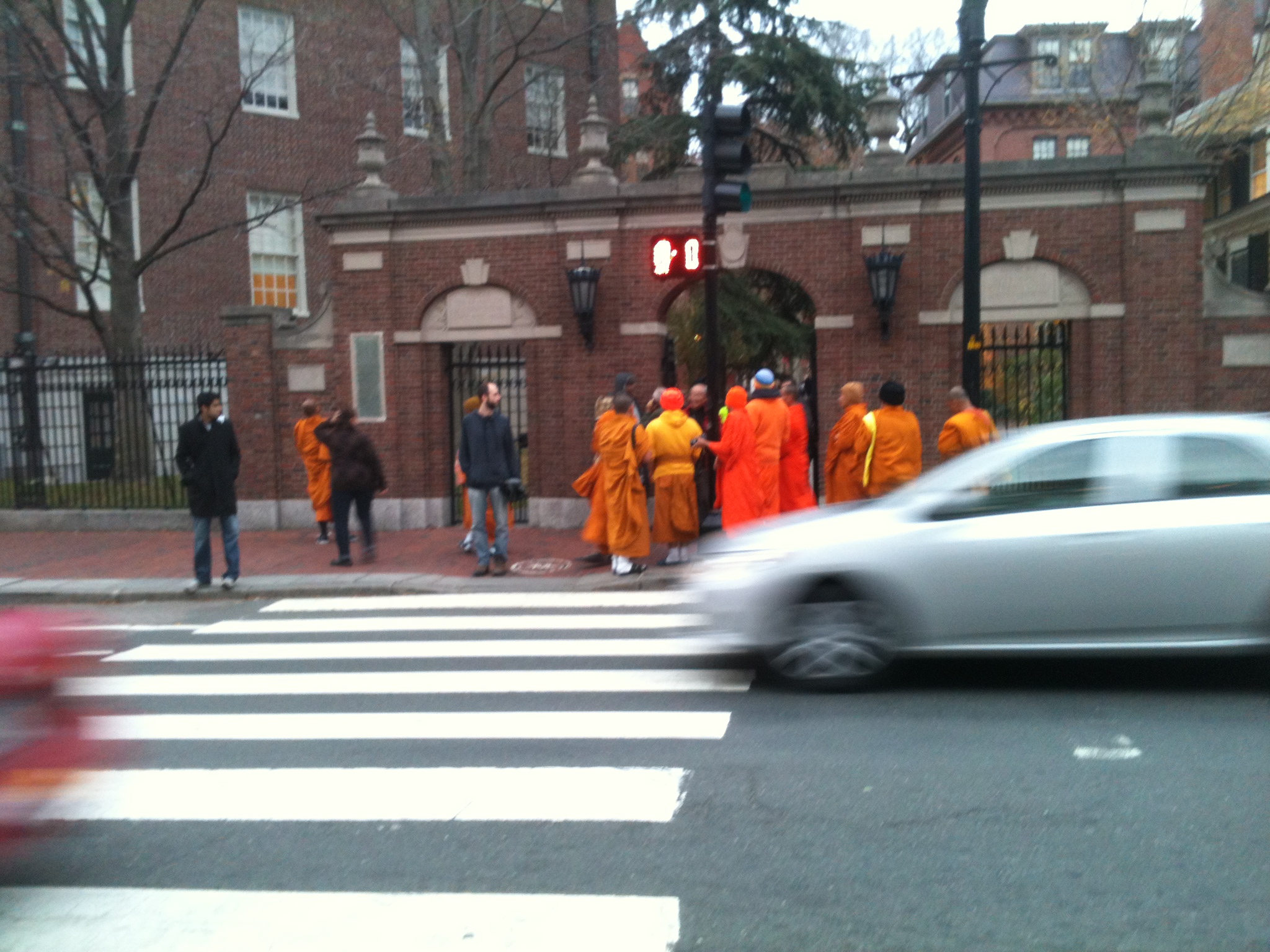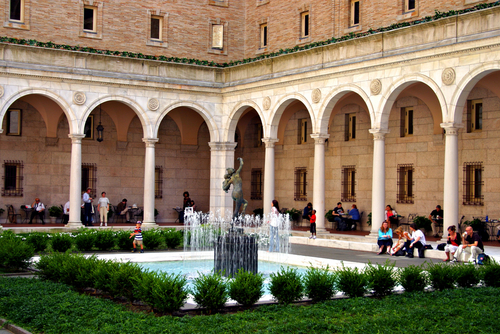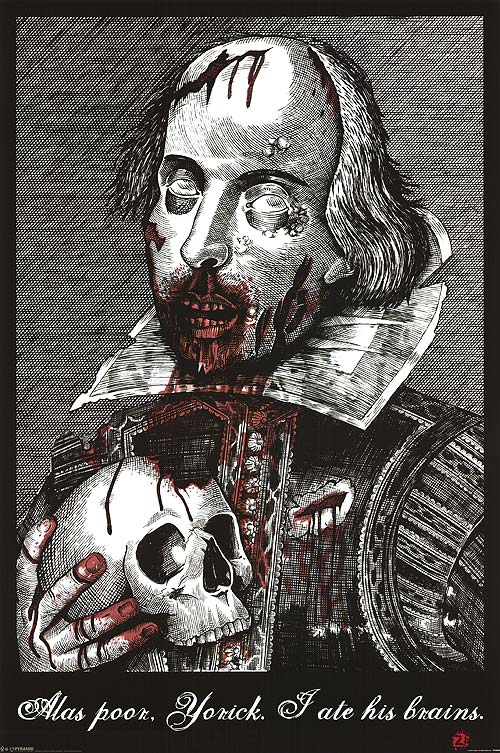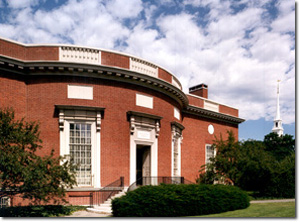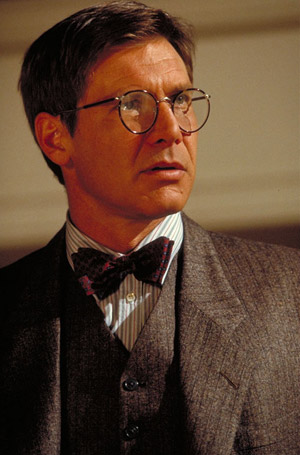Ah Thanksgiving. A time to relax, ponder those things in life which we are grateful for, eat some delicious food, take a nap after dinner, and spend time with the family. It’s the little break before the last leg of the race. Just a breather before we launch into the final stretch.
Almost there.
So close.
It’s dangling right over my head, I can see it, I just can’t quite reach it (even if I jump).
Panic? … …. …. PANIC!!!!
At the end of the semester every semester (and sometimes at the beginning depending on

Desk avec whiteboard. It literally looms over me as I work.
how overwhelmed I’m feeling), I dig out my giant whiteboard. I list all of the assignments standing between me and the semester’s end. I list their due dates. Then I make a big check-box for each of them.
The whiteboard’s been out for about a month now and, while I can see that I’m making headway on all of these things I have to do, the big three (namely: papers) are beginning to loom ever-more-menacing.
It’s funny because I kept telling myself that, since I didn’t have class this week, I could get SO MUCH DONE and be in the BEST SHAPE EVER for that final push. Well…. It’s Thursday. So far I have managed to chip away at things, but no great or drastic improvement yet. I don’t feel armed for this fight, I’m still waiting for them to alter my chain mail to fit me since I’m not amazonianly proportioned and, oh wouldn’t you know it, they stopped making chain mail in “short and stumpy” so they’re going to have to custom it and can’t fighting that dragon just wait another week, because they’ve got all these backorders due to black Friday and nobody gets work done during the holidays so it’s either go out there unprotected or wait a bit longer to get suited up and darn doesn’t it look like whatever pivotal equipment they need is going to fail horribly just in time to make my life incredible inconvenient?
Anyway, enough about that. Let me take a moment and bow to the wishes of today’s holiday spirit and put some positive juju out in the air in hopes that it will come back to me when I need it in these coming weeks.
Let’s start with a heart-warming Thanksgiving story.
I wasn’t going to go home for Thanksgiving. Driving down to New York to have dinner with my family, while appealing, was simply going to take too long. I couldn’t spend what would amount to three days away from my work at this critical time in the semester. So I regretfully tapped out of family dinner and went to start making arrangements as to how I could find some turkey to eat at my desk with my man Will.
My family is pretty much the best, because they decided that this meant (since I couldn’t come to them) they would drive up to Boston to spend the holiday with me. My mom’s bringing a full turkey dinner. My dad’s bringing bags and bags of high quality whole-bean coffee that he can’t drink anymore due to health reasons. My sister is bringing her lovely self. I’m really excited to see them.
So, while I still got up early to bang some things out today, as soon as they get here I’m putting the books down for the evening and taking a mental vacation for twelve hours. I don’t care how far back it’s going to set me. I have a lot to be thankful for this year and that pumpkin pie isn’t going to eat itself.
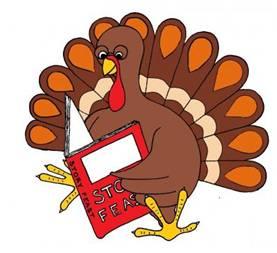
Ah the turkey. Nature's ugliest animal. Eating them is like beautifying the world, one drumstick at a time.
If you, like me, are still sitting at your computer frantically trying to put your affairs in order, I hereby give you permission to set it by a while. There’s nothing you can accomplish in this twelve-hour span that’s going to be more important, or more rejuvenating, than a good turkey dinner, some booze, and good company. Think about how lucky you are to be in the program you’re in, thank the fellowship gods, and then forget about it. Life’s too short to let finals stand in the way of enjoying dinner.
Happy Thanksgiving, everyone. I’ll catch you on the flip side with tales of the bloody battle to come; honor and glory; valorous victory; crushing defeats; injurious blows; and how to avoid death by library books.
Stay tuned.



